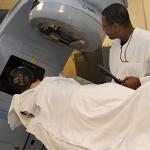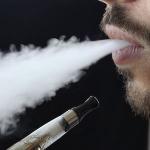Philadelphia, the city with one of the highest incidences of drug overdoses, announced yesterday support for “comprehensive user engagement sites”– a facility where drug-addicted individuals can use their drugs under the nominal supervision of nur
harm reduction
Scientific Reports published a paper on reducing medical radiation dosages, CT dose reduction factors in the thousands using X-ray phase contrast by Marcus Kitchen et. al.
As a physician, I can unequivocally say that about 70 percent of the illnesses I have encountered has been either directly or indirectly related to cigarette smoking.
E-cigarettes are "effective in helping people quit smoking" and "95% safer than smoking."* Additionally, there are "no health risks to bystanders."
The King County Health Department, which serves mostly the city of Seattle and its suburbs, has recently earned a reputation for being driven by politics rather than by evidence-based medicine or common sense.
Nicotine is one of the most addictive and widely used drugs in the world, bar none. And that's a big part of why it's so difficult for smokers to quit cigarettes.
One of my extended family members is a former smoker. Nagging him to stop did little good. Warning him against its health dangers produced similarly poor results. He was addicted, and he appeared to like smoking, anyway.
What goes up must come down. There is no top without a bottom. Two sides to every coin. No front without a back. A lid without a pot. My cliche list is endless. So, I will stop torturing you.











